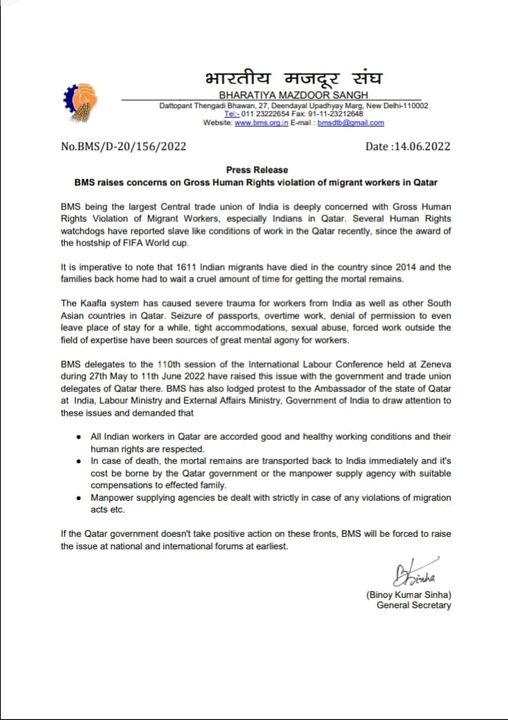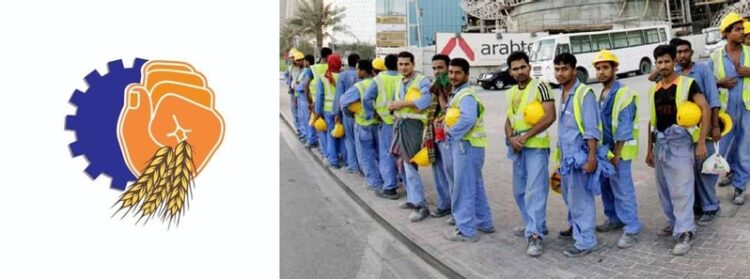Bharatiya Mazdoor Sangh, on Tuesday (June 14), expressed concern over the human rights violation of migrant workers, especially Indians in Qatar.
BMS, in the statement, said 1611 Indian migrants died in Qatar since 2014, and the families in India had to wait for a long time for the mortal remains.

It also said several Human Rights watchdogs reported slave like conditions of migrant workers after Qatar won the bid to host the FIFA world cup.
“The Kafala system has caused severe trauma for workers from India as well as other South Asian countries in Qatar. Seizure of passports, overtime work, denial of permission to even leave the place of stay for a while, small accommodations, sexual abuse, forced work outside the field of expertise, have been sources of great mental agony for workers,” BMS said in the statement.
BMS also said that it had shared its concerns with Qatar at the 110th session of the International Labour Conference held in Geneva held between May 27 to June 11 2022.
It also said in the statement that BMS lodged its protest against the Ambassador of the State of Qatar in India and brought the situation to the attention of the Labour Ministry, External Affairs Ministry and the Government of India.
BMS demanded Qatar respect the human rights of Indian workers and accord them with good and healthy working conditions. In the case of a death of an Indian migrant worker, the organisation demanded that Qatar has to send the mortal remains of the worker immediately and added that the cost has to be borne by the Qatar government or manpower supply agency with the suitable compensation to the affected family. BMS also demanded the Qatar government to dealt strictly with the manpower supply agencies in case of any violation of migration acts.
The organisation said it would raise the issue on the international stage if the Qatar government doesn’t take positive action on the raised issues.
The Kafila system is a sponsorship system that binds migrant workers to an employer in West Asia. The system is used to monitor the migrant workers who are dependent on the livelihood stay of living under the Kafila system.




















Comments